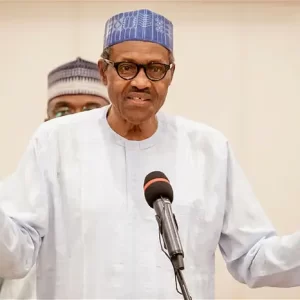•Tinubu
Nigeria’s long wait for local refining of petroleum products and overhaul of the downstream segment of the oil and gas industry is faltering on political points fueled by President Bola Ahmed Tinubu and feted by the ‘commercialised’ Nigerian National Petroleum Company Limited (NNPCL).
While technical, science, engineering and business realities drive operations of refineries, there are indications that Port Harcourt refinery as well as the expected gains of the downstream segment of the nation’s petroleum refineries are being affected by political propaganda, resulting in local and international investors remaining spectators amidst declining investments.
This comes amidst indications that the much trumpeted old 60,000 barrel per day Port-Harcourt refinery may not process Premium Motor Spirit (PMS) otherwise called petrol until the end of March 2024; and this may drag further, reports The Guardian.
Although it was gathered that the ongoing work on the refinery is commendable as the assets, especially the Area Five refinery is undergoing a total rehabilitation, most stakeholders are worried about the deception around the completion of the project, insisting that undue hype and flawed media coverage may do more harm than good.
While the NNPCL succumbed to President Tinubu’s December deadline for the completion of the repairs, it was gathered that only the Crude Oil Distillation Unit (CDU) of the refinery (Area Five) was ready as of early December; and this unit won’t produce PMS unless other units are ready.
The refinery, with two major units, the CDU and the Catalytic Reforming Unit (CRU), may not bring the needed products until the CRU comes on stream to provide gasoline and some by-products that could be off taken for industrial use but the volume remains a concern for most stakeholders. There is also an LPG plant along with the facility.
With the main output of CRU being gasoline (petrol), the facility would, if completed, turn out petrol primarily. Petrol accounts for over 80 per cent of the demand in the country.
Last December, NNPCL commissioned the project, admitting that 77 per cent of the rehabilitation work has been done. But stakeholders told our correspondent that the state oil company only danced to the political drumbeats of the current administration despite being commercialised.
Why did the NNPCL decide to commission a project that was yet to be completed? At what capacity utilisation will NNPCL commence the operation of the old refinery when the initial plan was 90 per cent? Has the state oil firm pressured crude to synchronise all operations against failure? Should there be a failure in any segment, how long will it take to import a part, knowing full well that these factors are unpredictable? Will NNPCL agree to waste 60,000 barrels of crude daily knowing quite well that value from the refinery is limited to just two units – CDU and CRU? What are the implications of the current rush to deliver the project, which has failed many deadlines? What difference will a 60,000 barrel per day refinery have on PMS demand in Nigeria?
With the Dangote Refinery delaying to take off eight months after it was rushed to be commissioned for the political gains of former President Muhammadu Buhari, the above and many more are questions most stakeholders are yet to find accurate answers to, as NNPCL seems to have toed the path of political expediency.
The oil refinery complex consists of a 60,000 barrels per day (bpd) old refinery that started operations in 1965 and a 150,000bpd new refinery that came on stream in 1989. Awarded in 2021 for repairs at $1.5 billion to Tecnimont, a subsidiary of Italy’s Maire Tecnimont, the project was expected to be completed in 2022. But still at 84 per cent, the best from crude would only be derived from the new refinery with 150,000, which comprises a CDU, a Vacuum Distillation Unit (VDU), a Naphtha Hydrotreating Unit (NHTU), a CRU, a Continuous Catalyst Regeneration (CCR) unit, a kerosene hydrotreating unit, a Fluid Catalytic Cracking (FCC) unit and a dimersol unit to convert propylene into a gasoline blendstock. It also houses a butamer isomerisation unit, an alkylation unit, apart from hydrogen purification, fuel gas vapouriser, sour water and caustic treatment units.
Renowned energy lawyer, Prof. Wunmi Iledare, said the refinery and other NNPCL assets remain a political expediency game with an economic efficiency and effectiveness dilemma.
“I say this because the political class and perhaps NNPCL itself still want to hold on to the old NNPC traditions. Thus, it is about political survival of the key players rather than value addition and growth as stipulated in the Petroleum Industry Act of 2021,” Iledare said.
According to him, while the act defines the structure of NNPCL clearly with respect to the refinery assets and who has a say within the context of their operations, the pronouncements by the ministers and surrogates with respect to NNPCL refineries are mere policy outcome expectations and they are delimited in enforcement.
“The NNPCL management that is responsible for the functionality of these assets does not report to these ministers but the Board of NNPCL. Of course, NNPCL is also entrenched in the past as it continues to hold tightly to the traditional public social welfare value optimisation burden.
“This is evident in several managements’ public pronouncements. To some of us, these are the issues underlying the Port Harcourt refinery asset debacle with no ending to be seen soon,” Iledare said.
Iledare insisted that the federal government entitlement mentality to NNPCL, as its cash cow, and the society’s rising propensity to transfer payments from NNPCL were not helping matters. The development, Iledare said, was inhibiting professional transparency and accountability in decision making in the petroleum sector in an overall sense.
Insisting that something must change quickly, he stated that the society must come to terms with the fact that petroleum is an economic good with rivalry and exclusivity in consumption.
“That is why appropriate pricing matters. The political elites, especially in government, must also come to terms with the fact that laws of the land matter. They must let PIA guide NNPCL in its functionality,” Iledare said.
The worries of most experts also revolve around possible failure of pipelines for products and crude, which has not been in use since the assets were shut down. They also expressed fears that the state of the road from the refinery may stall evacuation of products from the facility.
Although Reynolds Construction Company (RCC) was already working on the Eleme section of the East-West road, near the facility, it might take more than a year to make the road accessible again. Findings showed that this is of serious concern to communities, as they fear possible explosion of NNPCL product pipelines or tankers as well as leakages from crude pipelines.
The National President of the Petroleum Products Retail Outlets Owners Association of Nigeria (PETROAN), Dr. Billy Gillis-Harry, who told our correspondent that he has toured the refinery, noted that he had no doubt about the progress of work and quality of work being done at the facility. Insisting that NNPC deserves commendation, he said the facility may not start as early as most Nigerians are projecting.
Gillis-Harry noted that literally, all the equipment and parts including pipes, cables and critical parts were being replaced with new ones. He believes that the refinery would drastically address the challenges being faced by marketers in sourcing products, adding that Nigerians need to trust NNPCL on the refinery project.
“When I visited the refinery, I could not but appreciate the managing director. The facility is undergoing a full transformation. It is close to brand new. However, the testing stage is completely unpredictable. That the flare came up doesn’t mean the operation started. It is not possible to produce fuel this December. That can only happen in January into February 2024. I believe the refinery will reduce the challenges marketers are facing in the country,” Gillis-Harry said.
Energy and Infrastructure Expert, Dan Kunle, noted that the attitude of Nigerians, the manager of the refinery and the government regarding complex engineering projects like the refinery was below par.
He maintained that the political hype is unnecessary, adding that even if the political class chooses to indulge in propaganda, NNPCL shouldn’t have bought into it.
He noted that about 25,000 barrels of crude would be needed to test run the old refinery, pressuring it to ensure a synchronisation of the hardware apparatus along with other facilities.
Kunle said the process, which could take one to two months, remained unpredictable and could warrant importation of parts.
“NNPCL must stop making political statements. They should concentrate on fact and clarification of technical details. We need to stop political hype,” Kunle said.
Former President of the Chartered Institute of Bankers of Nigeria (CIBN) and professor of Economics at Babcock University, Prof. Segun Ajibola, noted that the fact that the refinery is nearing completion is laudable. Stressing that it is long overdue and won’t matter much whether it commences operations in January or February 2024, Ajibola said the refineries should be concessioned to professional managers under well negotiated terms and conditions.
“A lot is at stake in terms of anticipated contributions of the repaired refineries to the economy: boost to local supply for daily fuel consumption, conservation of foreign exchange via reduction in fuel import, salutary impact on GDP/employment, etc.
“These are the critical economic issues surrounding the repair of the refineries. If handled professionally (by engaging technical managers for example), there is the likelihood that the political interference would have been reduced to the barest minimum,” Ajibola said.
While Nigeria passed the PIA just about the time the refineries were awarded for repairs, the hope of full deregulation of the downstream sector and the expected gains didn’t happen. Former President Buhari, after leaving office, admitted to delaying the implementation of the Act to enable his party win elections. President Tinubu during his inaugural speech brought hope to the sector only to dash it as pricing issues deterred most investors.
The many years of government control of the downstream sector has made Nigeria the only major oil producing country in the world that relies absolutely on importation of petroleum products.
About 18 years ago, private investors had rushed to apply for refinery licences under former President Olusegun Obasanjo. Former President Buhari during his tenure offered other licences as well as the others that the new government has offered.
These licences should be in the region of 62, pushing the country’s refining capacity on paper to over 2.3 million barrels per day. This is about one million barrels higher than the country’s total crude oil daily production and an indication that the upcoming refineries are designed to fail or have the deep pockets to import crude oil into the country if the nation cannot increase crude oil production.
Going by the licences, the current refining capacity includes Dangote Refinery with 650,000 bpd capacity, BUA Refinery with 200,000 bpd capacity and NNPCL with a combined capacity of 445,000. OPAC refinery, the Walter Smith refinery, the Aradel refinery and the Edo refinery, which are already in operation, have a combined capacity of 27,000 barrels per day.
This brings the refineries that are either in operation or close to starting production to about 1.322 million barrels per day. The other refinery licences, mainly modular refineries with unknown status, have close to one million barrels per day capacity.
Group Chairman and Chief Executive International Energy Services Limited, Dr. Diran Fawibe, noted that the Obasanjo administration had offered licences for refineries as solutions to the shortage of petroleum in the country or to increase refining of oil in the country.
He regretted that none of the licences issued by Obasanjo translated to actual refineries due lack of conducive environment, particularly the regulated prices of petroleum products.
Fawibe said the regulated price of petroleum in the country makes the economics of refining unviable for many investors.
“And the consideration was that if you want to spend millions of dollars to establish refineries, then you should have freedom to reflect the cost of production, that’s capital equipment and cost of production, including crude oil in the price of fuel that you are going to turn out in the refinery; and since the petroleum products price was fixed, it was not considered viable for most investors,” Fawibe said.
























